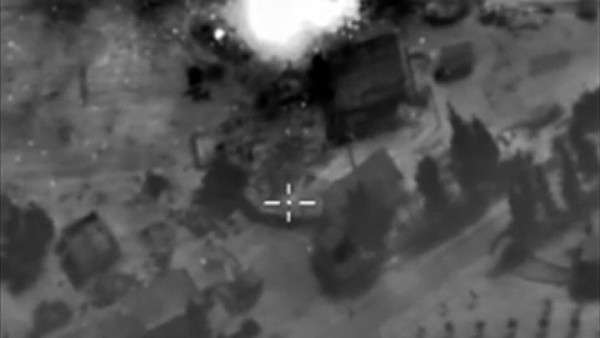
Syrian rebels who oppose both the regime and the Islamic State group have been hit hardest by Russian air strikes, showing Moscow’s determination to defend President Bashar al-Assad against all enemies, analysts say.
More than four years into Syria’s devastating war, Russian warplanes began air strikes there on Wednesday, saying they were targeting IS jihadists and “other terrorist groups”.
But Western officials said they had indications the Kremlin was concentrating its attacks on anti-Assad factions instead of jihadists.
Experts and a key monitoring group say that Moscow’s targets show it intends to strike all opposition groups opposed to Damascus — jihadist or otherwise — in an effort to save Assad.
“Moscow has entered Syria to hit not just Daesh, but all groups it regards as terrorists, including those supported by the Gulf monarchies and Turkey,” said Syria specialist Fabrice Balanche, using the Arabic acronym for the group.
“The first wave of Russian air strikes seemed to focus on rebel areas that threaten the Assad regime’s Alawite heartland, showing that Moscow is more focused on seizing the mantle in Syria’s war than fighting terrorists,” he wrote in a policy brief for the Washington Institute for Near East Policy.
– Bombing to support Assad –
Over the past two days, Russian strikes have targeted areas held by Syria’s Al-Qaeda affiliate Al-Nusra Front, powerful Islamist group Ahrar al-Sham, and smaller moderate groups — some of which have received direct backing from the United States and Arab states.
The raids have hit the provinces of Idlib in northwest Syria, Latakia on the coast, and Homs and Hama in the centre.
IS is not known to have a presence in any of the targeted areas.
According to a Syrian security source, the Kremlin “considers IS, Nusra, and other rebels all as terrorist groups,” as does the Assad regime, the source told AFP.
Over the past four years of war, the Syrian regime has taken great pains to paint all of its opponents — even non-violent activists — as “terrorists”.
Analysts say that instead of striking areas where IS is strongest, like in its bastion province of Raqa, the Russian air force has opted to concentrate on areas where the regime is under greatest threat.
“Russia’s objective is defending the regime. In this context, the non-jihadist armed opposition represents the most pressing threat,” said Peter Harling of the International Crisis Group think tank.
Although a US-led coalition bombing jihadists in Syria for more than a year has also struck Al-Nusra and Ahrar al-Sham positions, the priority has remained IS.
According to Rami Abdel Rahman, head of the Syrian Observatory for human Rights, “the Russians are bombing to support the regime in the provinces of Homs, Hama, and Latakia where Alawite areas have been threatened or attacked.”
The Alawite sect is the offshoot of Shiite Islam to which the Assad clan belongs.
– Trap for the Russians? –
Abdel Rahman said a major concern for Assad’s beleaguered regime was a key “triangle” that ran across parts of Homs and Hama and included Talbisseh and Rastan — struck by Russian warplanes on Wednesday.
He said recent rebel advances in these areas threatened a major regime supply route north towards Aleppo province.
“A few weeks ago, Al-Nusra and other rebels used Talbisseh to launch an attack on nearby Alawite villages like Farrakhan,” Abdel Rahman told AFP.
Al-Nusra had also threatened nearby Christian and Alawite villages, which is why the Russians chose to target Talbisseh, the Observatory said.
And in northwest Syria, Russians had struck Jabal al-Akrad, which rebels seized in 2012 and have used since to fire rockets at Latakia airport and Qardaha, Assad’s ancestral homeland.
Moscow also targeted positions in Idlib province, which Assad’s forces lost earlier this year after lightning offensives by the Army of Conquest group.
The Kremlin’s military involvement is a bid “to help (the regime) hold on, in hopes that the opposing party will accept it,” Harling told AFP.
But Karim Bitar, head of research at the Institute for International and Strategic Relations in Paris, said “these strikes further complicate the conflict… and could turn into a real trap for the Russians.”

Leave a Reply
You must be logged in to post a comment.